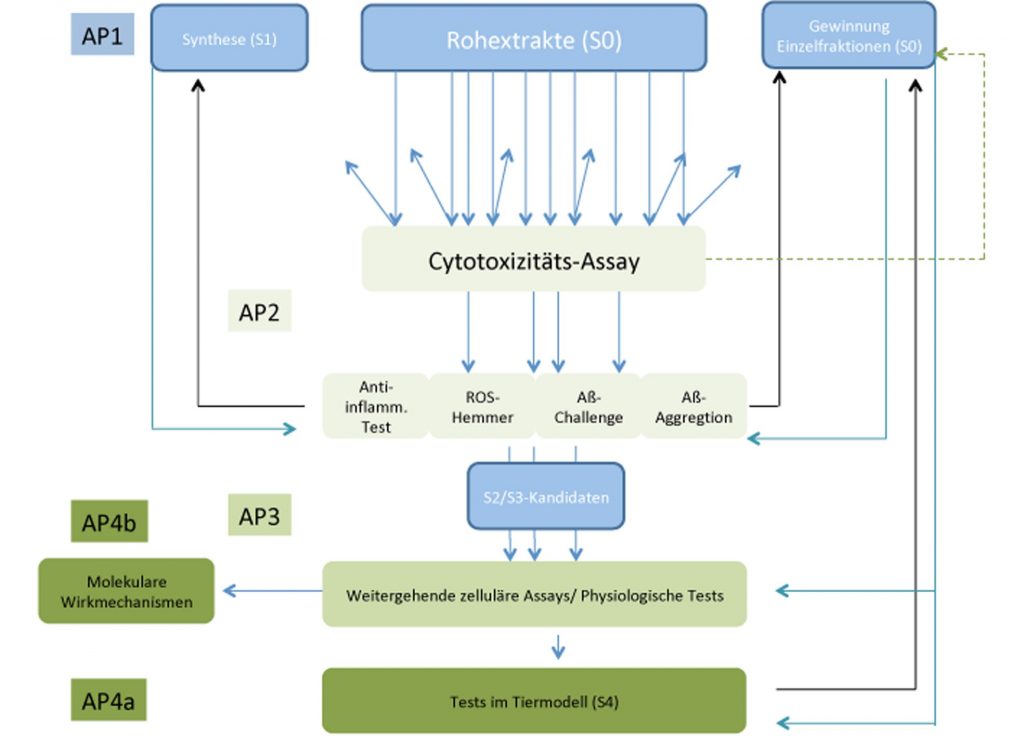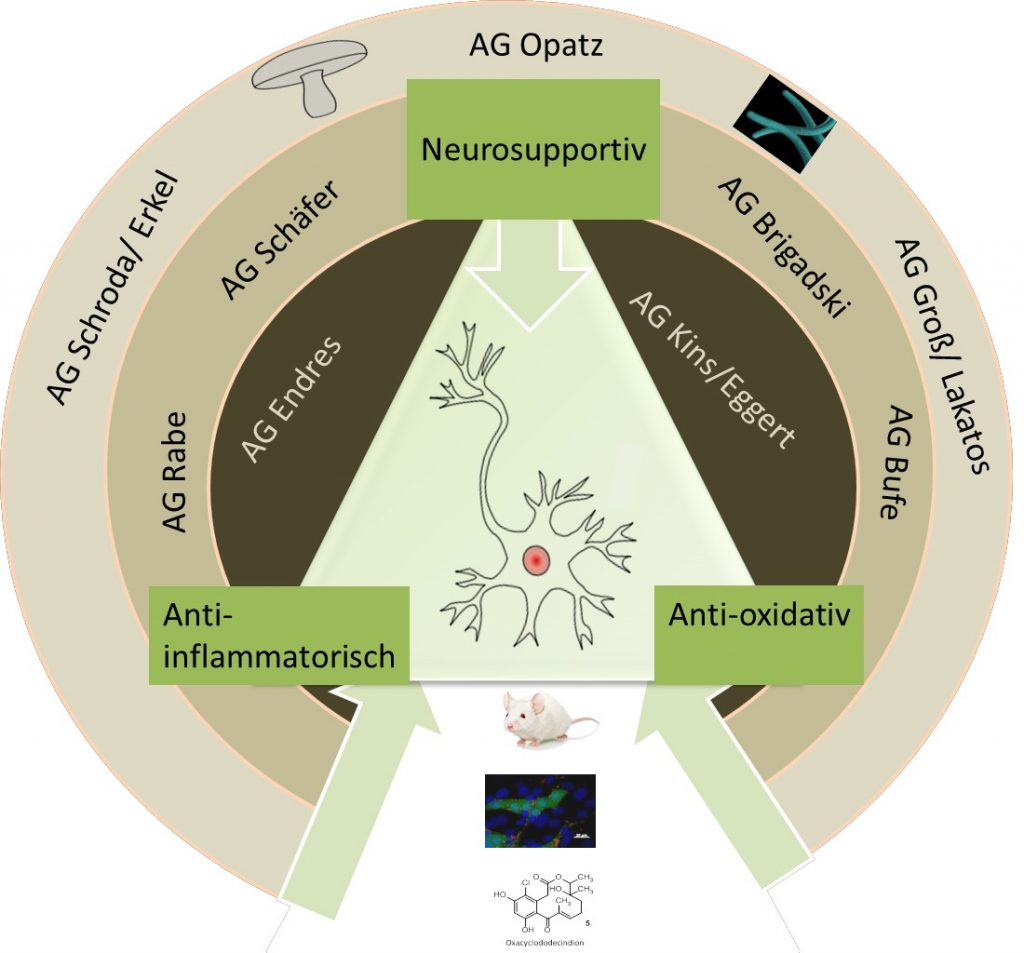NEURODEX
Isolation and characterization of neuroprotective substances from fungi and cyanobacteria as potential agents for the treatment of neurodegenerative diseases
In addition to the central nervous system (CNS), the intestine could be involved in the
development of neurodegenerative diseases plays a much more important
role than previously assumed. This applies both to the entirety of the bacteria colonizing the intestine, as well as to the bacteria present in the intestine.
intestinal wall, the complex intestinal nervous system, the so-called
Enteric nervous system (ENS), to. There is much to suggest that
some neurodegenerative diseases, even if they do not affect their
originate in the intestine, but are at least modulated by the microbiome or the immune system of the intestine and significantly influenced in their course.
be influenced. A consortium of biotechnological,
cell-biologically and biomedically oriented scientists from the three
Universities will identify potentially neuroprotective substances,
and isolate their effect in heterologous expression systems, in
cell culture, ex-vivo models and animal models. The
In the planned project, members want to leverage the influence of a number of already
isolated active substances from fungi and cyanobacteria on the two
nervous systems – CNS and ENS – as part of the
Investigating the pathogenesis of neurodegenerative diseases. In addition, new, previously unknown active ingredients are to be isolated and
be characterized accordingly. The focus of the consortium is on Alzheimer’s dementia.
Project management:
Speaker: Prof. Karl-Herbert Schäfer (HSKL)
HSKL: Prof. Dr. Bernd Bufe, Prof. Dr. Tanja Brigadski, Prof. Dr. Holger Rabe, Prof. Dr. Peter Groß, Dr. Michael Lakatos
TUK: Prof. Dr. Michael Schroda, PD Dr. Gerhard Erkel, Prof. Dr. Stefan Kins, Prof. Dr. Sebastian Eggert
JGU: Prof. Dr. Till Opatz, Dr. Kristina Endres
Project partner:
Technical University of Kaiserslautern (TUK),
Johannes Gutenberg University Mainz (JGU)
The project is funded by the BMBF

